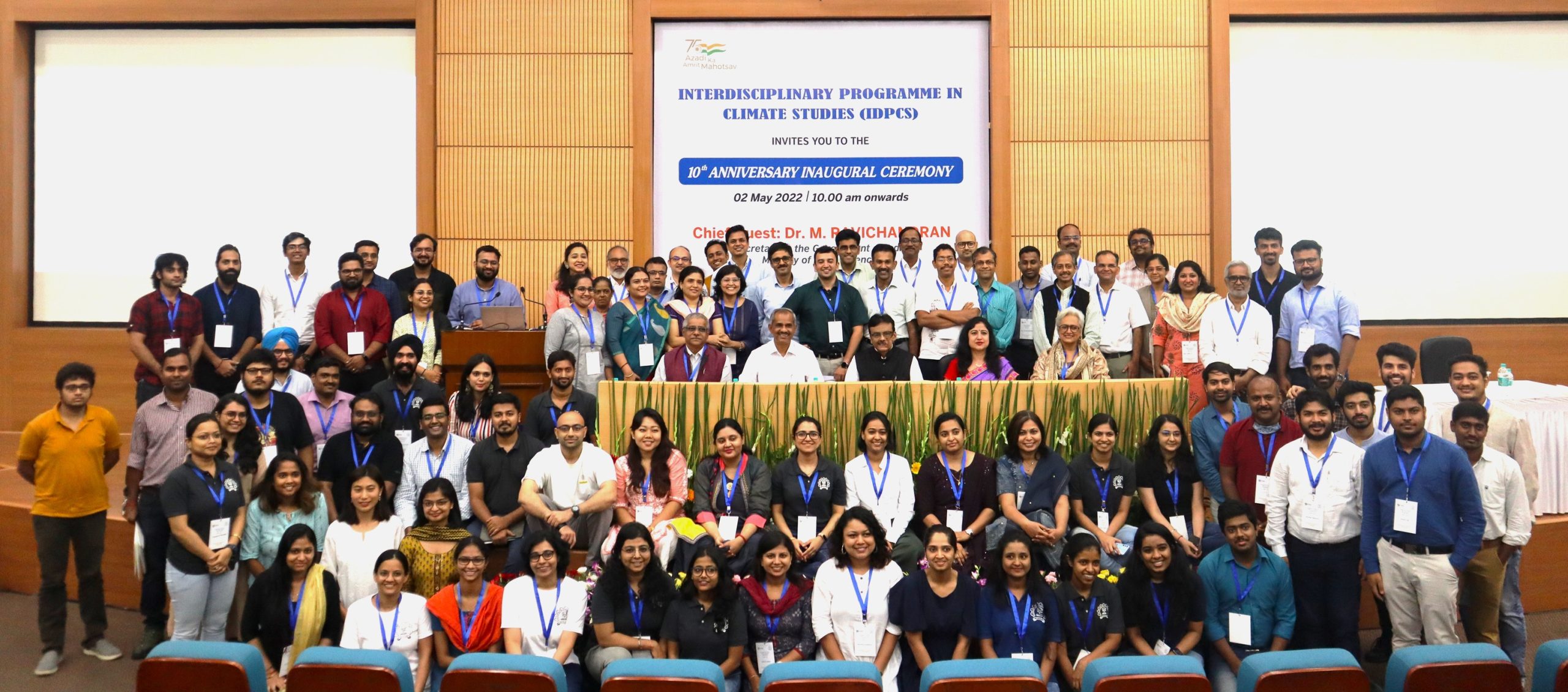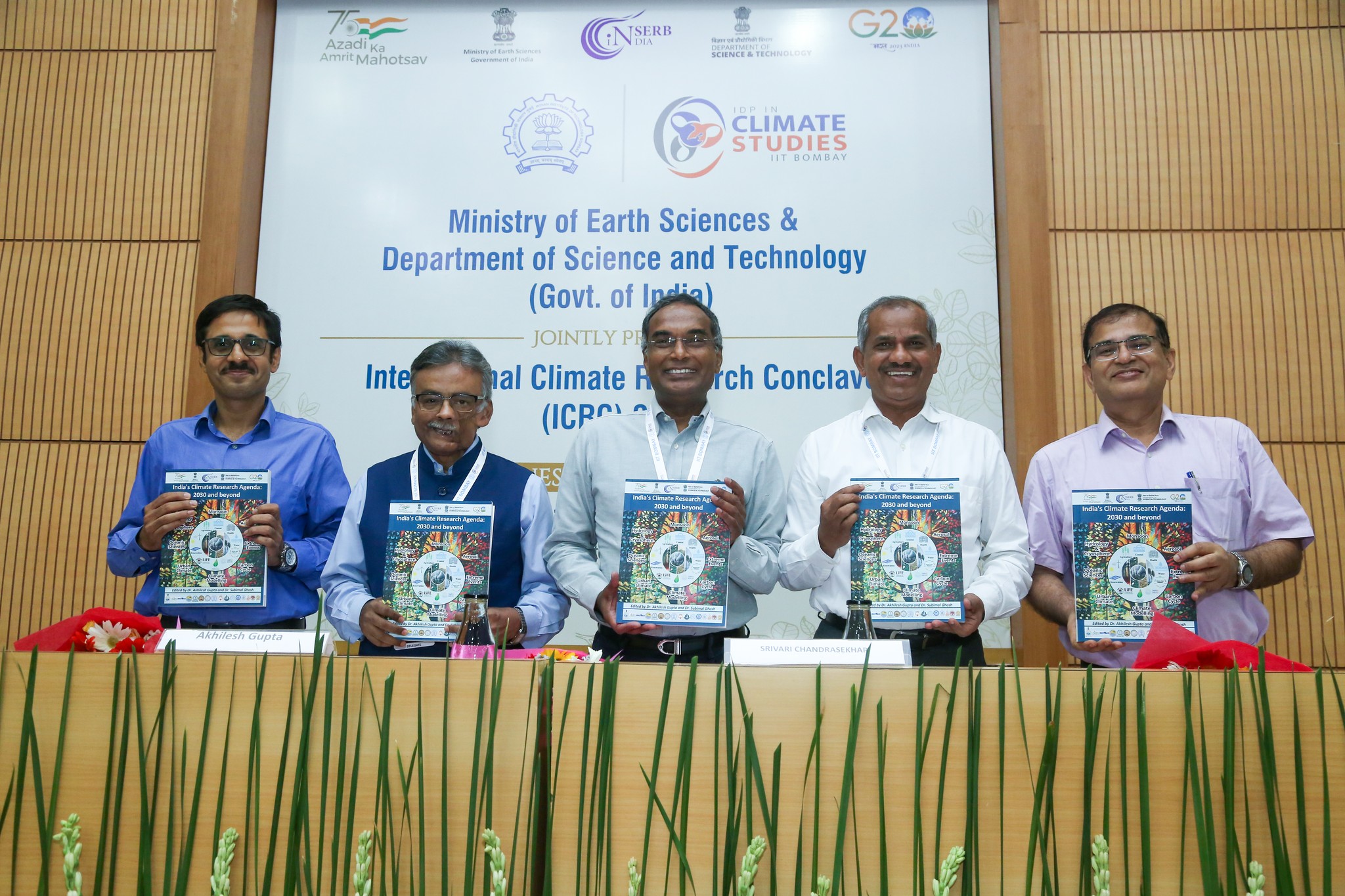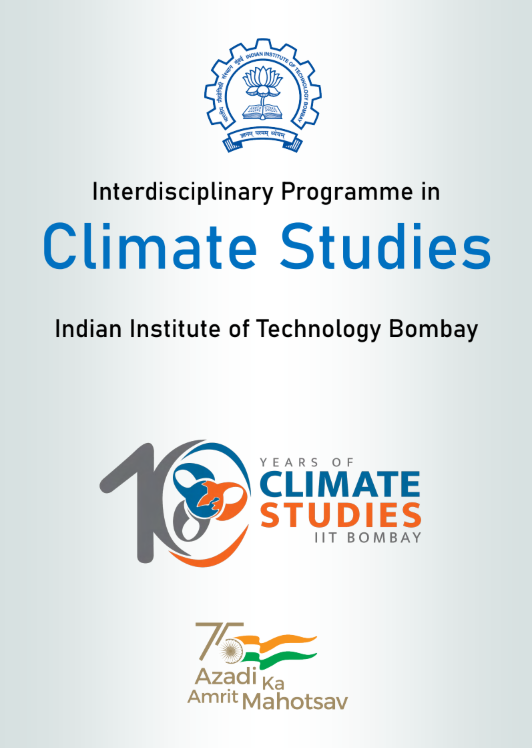Climate Science
Advancing climate science through data-driven insights, innovative research, and collaboration to secure a resilient, sustainable future.
Climate Dynamics and Modelling
Join us in shaping a sustainable future.
Overview
While the climate change is global, its manifestation is spatially inhomogeneous regionally. Despite of past efforts, important questions remain unresolved in understanding the climate dynamics of Indian region. The research groups in Centre for Climate Studies choose problems across different scales that are either overlooked or are proving to be the bottleneck in our current understanding of climate.

Sub-Research Area
Clouds and Monsoon Dynamics
Clouds are proving to be a notoriously hard problem both for monsoon forecasts as well as for climate projections. We study development and growth of different types of clouds and their intricate microphysics to identify their novel dynamics and the role they play in development of storms. We also study mechanisms of multi-scale cloud-circulation coupling to identify and simulate their effect on sub-seasonal monsoon variability.

Sub-Research Area
Ocean dynamics and Mixing
The complex interactions between Indian monsoon and conditions in oceans surrounding India have been one of the key missing pieces in better forecasting the seasonal development of monsoons. We have identified the differing role of Arabian sea and Bay of Bengal in monsoon dynamics. The state of the ocean and its vertical structure has an important bearing on ocean dynamics. Our efforts have lead to not only improvement in ocean mixing models but also to our understanding of broader aspects of how rotating convection is modulated by waves and eddies.

Sub-Research Area
Land-Atmosphere interactions
For a long time, role of local land-atmosphere interactions on large-scale structure of monsoon was overlooked. For the first time, we showed that the variability in local influences through irrigation and agricultural practices fundamentally affects sub-seasonal and seasonal characteristics of monsoon. Furthermore, the influence of re-cycling of water is non-trivial and in-fact may affect synoptic rainfall events including Cyclones.

Sub-Research Area
Weather and Climate Modeling
The spatial manifestation of global warming and its links to the pattern effects (spatial patterns of surface warming) are not understood well. Our recent work proposed updated estimates of Equilibrium climate sensitivity considering the pattern effects. We also develop simple models to better understand and represent complex climate interactions and temporally evolving patterns of forcings and warming.
Research Groups
Explore faculties working in the field of climate dynamics and modelling
Assistant Professor My research interest lies in large-scale atmospheric dynamics, South Asian summer monsoon, and extreme climate. My work focuses on understanding diverse atmospheric phenomena elucidated by atmospheric dynamics and thermodynamics. Assistant Professor My work focuses on understanding how Earth's climate system responds to various perturbations ranging from natural phenomena to human activities, across global and regional scales, such as India, South-East Asia, the Tropics, and the Arctic. Assistant Professor We apply analytical and numerical techniques to study the fluid dynamics of climate processes, ranging from the microphysics of clouds and the convection-driven melting of sea ice to the flow in and around buildings in urban settings. Assistant Professor I am a physical oceanographer exploring the role of ocean circulation in climate. I have worked on understanding how small-scale turbulence could influence large-scale ocean circulation. Assistant Professor Our group works on different aspects of tropical climate dynamics with a special fascination for Monsoon Dynamics. We use satellite and ground based observations to learn about new features of monsoons and then use an army of models (starting from Climate Models ~ 100km grid-boxes to Cloud Resolving Models ~ 1km grid-boxes) to replicate these feature with an aim to ultimately understand the underlying processes. Professor Prof. Chandra Venkataraman is a leading aerosol scientist at IIT Bombay, specializing in climate science, air quality, and nanoparticle engineering for drug delivery. She has authored over 150 publications, led major research networks like COALESCE and PAVITRA, and contributed to global policy through roles with UNEP and the Global Burden of Disease group. Professor We the Hydro-Remote Sensing Applications (H-RSA) Group led by Dr. RAAJ Ramsankaran mainly focus on the use of satellite, GNSS (Global Navigation Satellite System) and aerial remote sensing measurements to study various aspects of water cycle. Professor TBU Professor TBU Professor Our research group works on advancing the understanding and modeling of hydro-climatic processes, with a focus on the Indian monsoon. We explore the interactions between the atmosphere and land surface, develop regional and statistical modeling techniques, and assess the impacts of climate change on water resources.
Akshaya Nikumbh

Angshuman Modak

S. Ravichandran

Suyash Bire

Vishal Dixit

Chandra Venkataraman

RAAJ Ramsankaran

Sridhar Balasubramanian

Subhankar Karmakar

Subimal Ghosh









